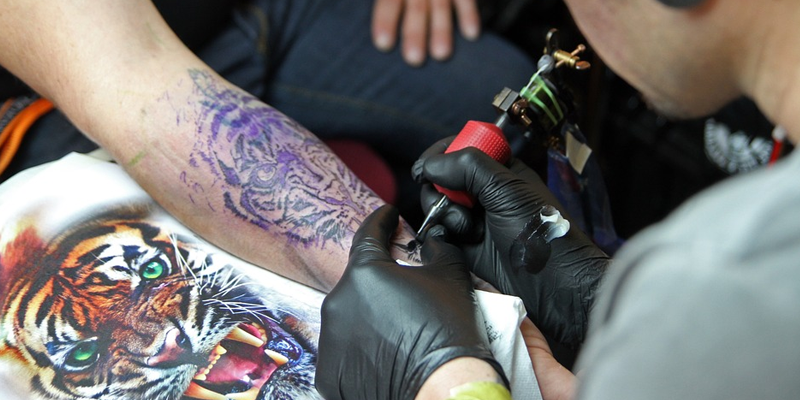Spread the loveMany times when we think of tattoos, we think of a very long and painful process. This is often a very frightening thought. A lot of people wouldn’t even think of getting a tattoo simply because of their idea of what the process involves. To understand what getting a tattoo means, we have…
Are Tattoos An Addiction?

The longtime connection between tattoos and individuals of questionable character is not the sole account for why tattoos are frequently given a bad reputation. While of course this connection, which is becoming less and less of a factor as each generation progresses, has been true in many circumstances, the subject of tattoos in the present day has yet another cloud over its reputation; it is darker, and rarely based on the truth.
From both those who know and those who do not, there are frequent insinuations about the „addictive“ characteristics of tattooing. Many people sport multiple tattoos; some have acquired them over a number of years or decades, while others make regular trips to their favorite tattoo studios, but arbitrarily labeling this as an „addiction“ is unfair, unrealistic, and rarely based in fact. As each person has his or her own individual reason for getting tattoos, it is impossible to know what a person’s reason is unless he or she states it. Some like artwork, some wish to honor a special person, some get tattoos in order to feel a part of some specific group, some people just enjoy spending money. In other words, most people have their own individual reasons for getting tattoos, and it is almost never a matter of being „addicted“ to them.
There are two parts of this misconception. Both play a role in giving a bad reputation to the subject of tattoos as well as to the people who elect to get them. The first is that people are addicted to the tattoos themselves; the second misconception is that people are addicted to the process of getting them– specifically, that they are „addicted to pain.“ One might wonder the mindset of anyone who states the latter opinion; but it certainly provides quite a scope of misunderstandings on the entire subject.
One tattoo artist, in remarking that tattoos are a „fever,“ had been referring to the simple, if odd, enjoyment which many of his clients had in being able to spend money to buy permanent artwork for themselves. „I think I’ll get another one“ was something often heard in his studio. This did not constitute „addiction“ by any definition of the word. Nor, in his decades of practice as a tattoo artist, did he ever have a customer who even remotely enjoyed the discomfort of the tattooing process.
The word, and its mistaken applicability to tattoos, is often tossed around by those who know too well what the word „addiction“ really means. Addiction is a compulsion, something over which a person has no self-control. Addiction cannot differentiate between a „want“ and a „need.“ Individuals who do have numerous addictions– drugs, alcohol, behaviors, etc.– can very well become addicted to tattoos. However, that is certainly not the case for the majority of people who decide to get them. Most people who get tattoos do so simply because they want them; they do not possess the weakness of character which leads addicts in the position of being compelled to do something.
The concept that a person gets tattoos because he or she is addicted to pain and therefore enjoys the painful process of being tattooed can only come from either the most ignorant or those who have some personal issues of their own.
Unfortunately, both of these misconceptions shed a very negative light on both the subject of tattoos and the people who wear them. It is a bad reputation which neither deserve, for there is almost never any fact in either point of view. While there are those who get tattoos with less than desirable motives, most people who get them do so with no negative attachment to either the tattoos or the process whatsoever. The bottom line is if you find someone who is attempting to convince you that getting tattoos is an addiction, you’ve probably found someone who actually is an addict and does not realize that most people are not.

